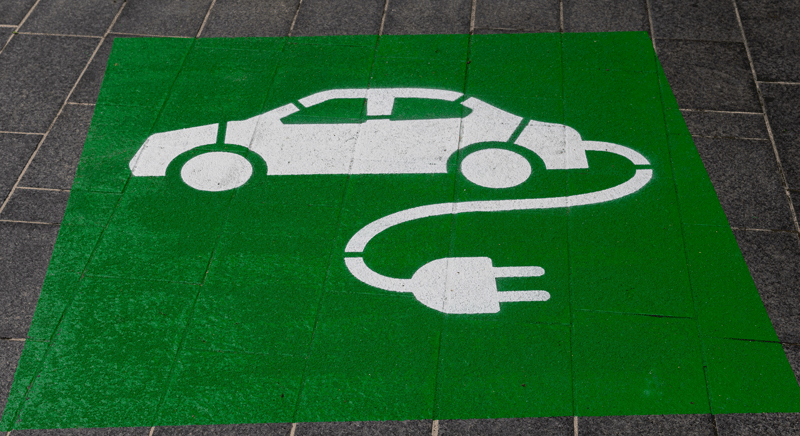
The pandemic has prompted us to reconsider many aspects of our lives, from our working habits to how and where we spend our money. It has also served to heighten our awareness of environmental issues, as we begin to think of the world we would like to see post-pandemic. According to a survey by management consultancy company Accenture, 60 percent of consumers say that they have started making more environmentally friendly, sustainable or ethical purchases since the onset of the pandemic in 2020.
In the business world, too, sustainability has become a top priority over the course of the past year, with major firms such as Unilever and Google announcing significant green pledges over the course of 2020. Even amid the COVID-19 crunch, venture capital firms have been pouring money into sustainable, purpose-driven start-ups, suggesting that eco-friendly products and services may well be a key area of growth in the post-pandemic world. With that in mind, let’s take a look at five of Europe’s top sustainability pioneers.
1 – Oatly (Sweden)
The non-dairy milk market has been booming in recent years, and is predicted to reach revenues of over $38bn by 2024. This is good news indeed for Swedish oat milk-manufacturer Oatly, which has seen its sales soar as ethically-driven consumers seek alternatives to traditional dairy products. Founded in the 1990s, the company states its aim as: “to make it easy for people to turn what they eat and drink into moments of healthy joy, without recklessly taxing the planets’ resources in the process.” Boasting partnerships with major retailers such as Starbucks, the company is undoubtedly one of the most prominent names in the plant-based industry, and is now said to be seeking a valuation of close to $10bn as it prepares to go public on the US stock exchange.
2 – EO Charging (UK)
With many of the world’s workers giving up the daily commute in order to work from home in 2020, the pandemic has encouraged a reassessment of our transport usage. While global car sales fell by around a fifth during the pandemic, sales of electric vehicles rose by a remarkable 43 percent, showing an increased appetite for eco-friendly cars. As the demand for electric vehicles grows, the need for increased EV charging infrastructure is becoming ever more apparent. Based in the UK, EO Charging is one of Europe’s leading manufacturers of electric vehicle charging ports, having sold more than 30,000 charging points in over 30 countries in the five years since its launch. Working with high-profile partners such as Uber, Sainsbury’s and Ocado to facilitate a transition to EV, EO Charging was recently named among the Financial Times’ fastest growing companies in Europe.
3 – Cellugy (Denmark)
Plastic pollution is an area that has come into sharp focus over the course of the past 12 months, with discarded single-use masks becoming an all too common sight since the start of the pandemic. Based in Aarhus, Denmark, Cellugy is a pioneering biotech start-up that is committed to helping to bring an end to plastic pollution through the creation of alternative forms of packaging. Its innovative product, called EcoFLEXY, is a durable material designed for use in the packaging industry. Made from recycled food waste, the product is all-natural, fully recyclable and biodegradable. In a recent seed round, the company raised €2.38m from the European Innovation Council Accelerator, which will allow it to scale-up production of its EcoFLEXY product.
4 – RanMarine Technology (Netherlands)
An unexpected side effect of the COVID-19 pandemic has been the unfortunate increase in marine litter pollution. Plastic gloves, single-use masks and other forms of PPE have been washing up on beaches across the globe, with this increase in plastic waste threatening the health of marine life the world over. Dutch drone technology firm RanMarine is the company behind the innovative WasteShark – a product designed to clear plastic and other waste from all manner of waterways. The device has a 10-hour ‘swimtime,’ and is able to clear 500kg of debris from the water each day – with users able to control the device remotely and monitor its progress in real time. The firm secured a Series-A investment in 2020, allowing it to scale-up its operations this year and beyond.
5 – Meatless Farm (UK)
After years of unstoppable rise, 2020 was the year that plant-based foods well and truly hit the mainstream. In the UK, sales of plant-based foods hit £1bn for the first time, with market research company Kantar finding that 13 million consumers had bought meat-free substitutes and dairy-free milk. Fully-vegan companies such as Meatless Farm have seen their sales soar as demand for plant-based products grows. The British firm is on track to record £50m in sales in 2021, with founder Morten Toft Bech setting his sights on an eventual $1bn valuation. If achieved, this will make the Meatless Farm a rare ‘unicorn’ company. After a ‘Veganuary’ sales bump – which saw the company’s global sales rise by 92 percent compared with the same month in 2020 – 2021 is already shaping up to be a momentous year for the Meatless Farm.


